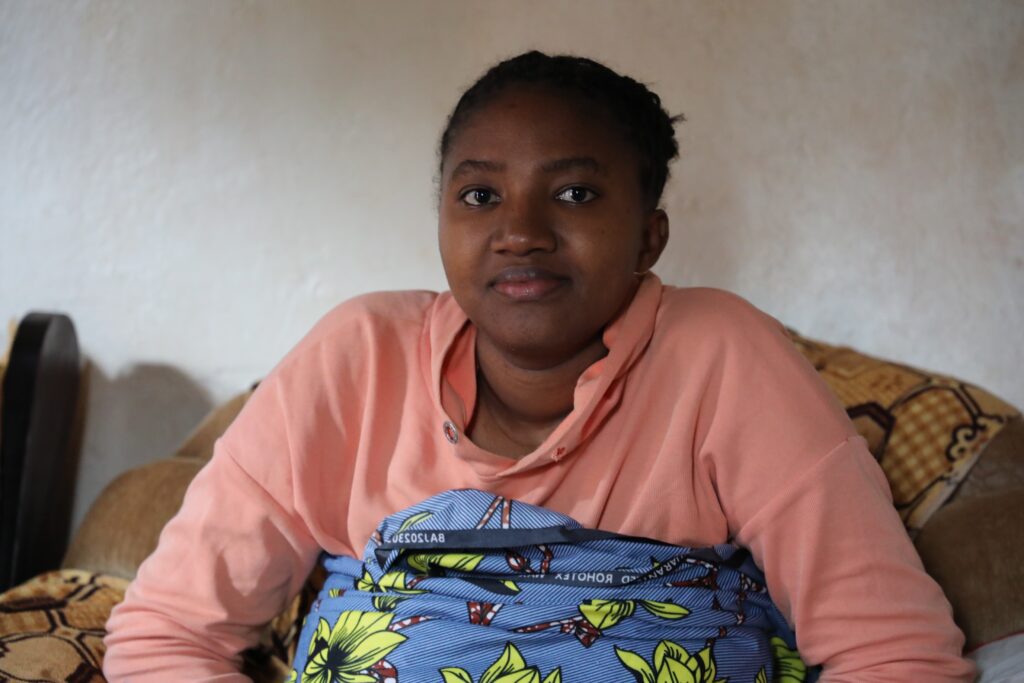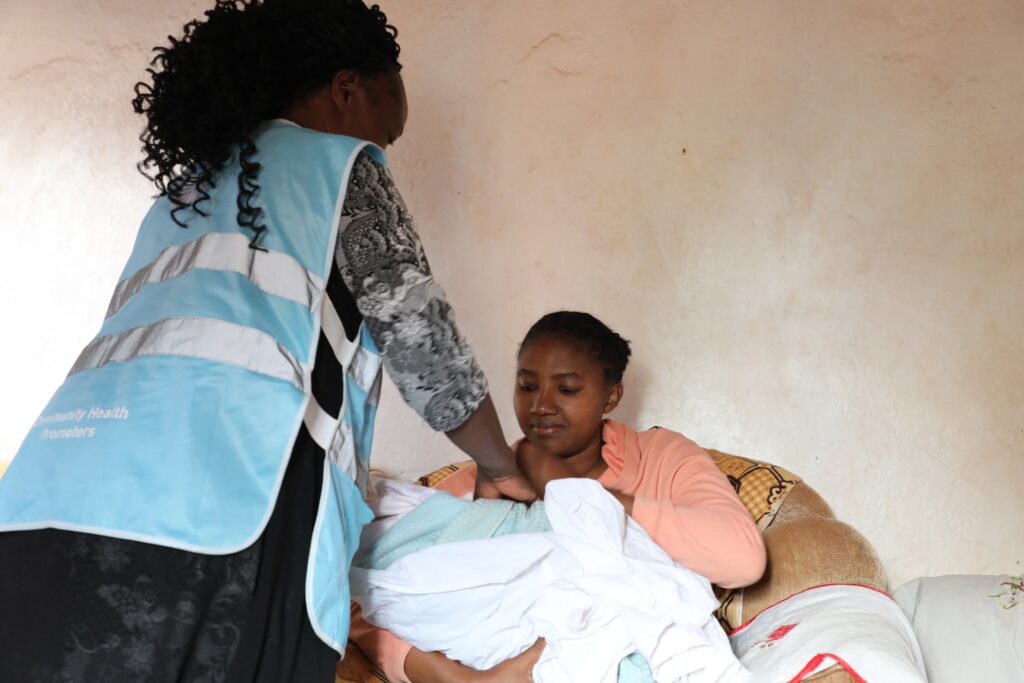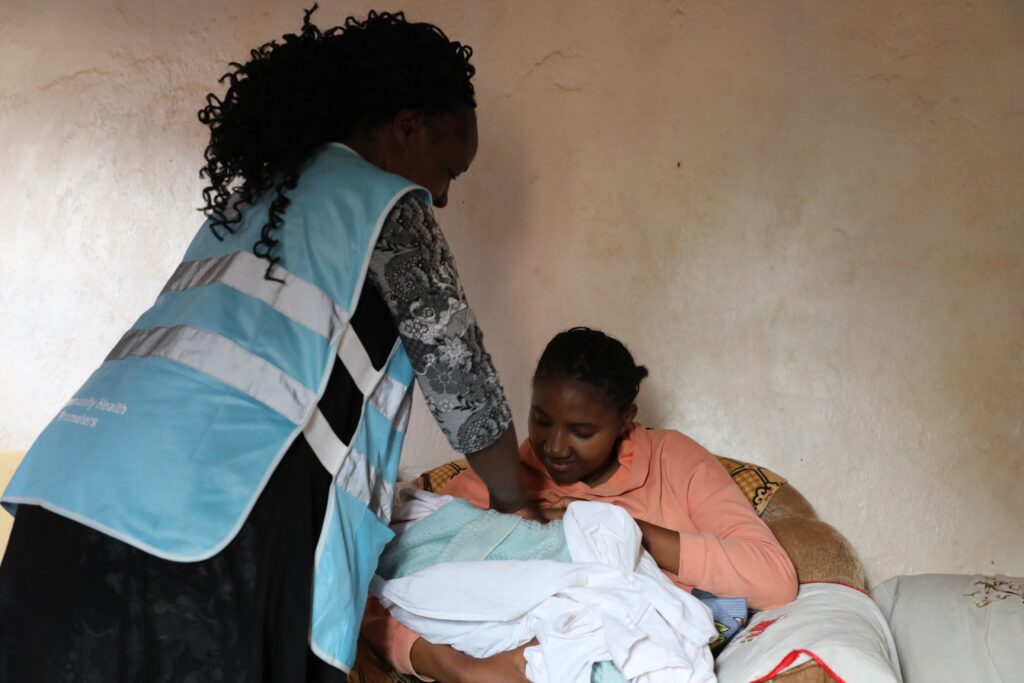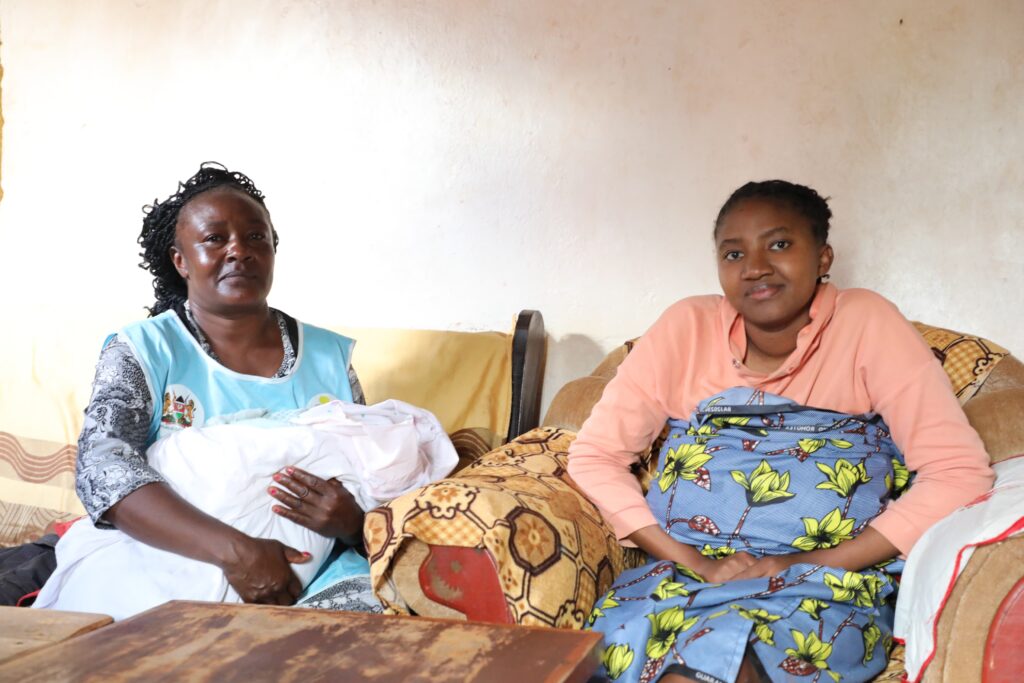After she finished her high school education, Linet Mutheu, then at 17 years of age, was elated after passing and successfully acquiring a position in college to study her dream course, Information Technology.
“I have always been fascinated with IT. My love for computers began when I went to high school and attended my first computer study lesson in high school. Coming from a village in Kasinga, Machakos County, this was my first time interacting with a computer. I interacted with computers at the supermarkets in town, which always fascinated me with how agile and promptly the young women and men behind the cashier desks operated the computers at check-out. In those moments, my love and dream of working with computers were revived and lit up.” Linet shares.

Linet did not doubt what course she wanted to pursue once her results came and she saw that she had qualified to get into Maasai Technical College, Kajiado County.
“College was fun. What I loved the most was the flexibility of the studies. Unlike high school, where we were under the maximum supervision of our teachers, college offered the flexibility and laxity to pursue what you wanted and in reasonable hours.”
“College also meant that I could now pursue relationships without the scrutiny of my high school teachers. Old, tattered and worn-out posters were scattered all over the school encouraging staying away from drugs, practice safe sex and take our sexual reproductive health matters into our own hands. There were various posters like Vijana tumechill. Tumia CD. life yako iko mikononi mwako. ” Linet recalls longingly.
Confined in their single-roomed shared hostel, Linet’s roommates spent nights on end talking about their boyfriends and comparing the different safety methods they used to prevent pregnancies.
Roommate 1: “I prefer the IUCD. It is safe and long term and it stays up to ten years with regular checkups with your gynecologist.”
Roommate 2: “ My older sister warned me against the IUCD especially for young girls our age because it can affect your chances of getting pregnant in the future.” another roommate interjects. “ She advised that I use the Depo injection which is much safer.”
Roommate 3: “ I saw this famous gynecologist on TikTok against the IUCD and depo injection who recommended the tablets method which you can keep track of and is easier to get pregnant once you decide you are ready to have kids.”
Armed only with tidbits of knowledge from her roommates, hearsay from their older sisters and Tiktok knowledge, Linet decided to take her sexual reproductive health into her hands and get a contraceptive method. Fearing the stigma of her classmates and the rumour-mongering visiting her free college clinic would elicit, Linet decided to get her services from an outside private clinic. With a limited student budget and without much regard of the side effects of the method, Linet settled for the arm injection.
Unbeknownst to Linet, one of the side effects was irregular periods or no periods at all which began as soon as she began her Depo Provera three-month shot.
“After I got the injection, I noticed that my periods were irregular. They would vary between 2-4 months and I knew that it was because of the contraceptive injections I was getting. Other than the irregular periods, I would also get headaches and feel dizzy which I shrugged off at the thought that my body was still adjusting. The side effects persisted and I opted out of the injections.
After I quit the injections, I went for 7 months without seeing my period but I assumed that the side effects were still persisting. It is during this period that Linet discovered that she was pregnant.
Unwilling to continue paying for her hostel room after completing her final semester and pregnant, her mother suggested that Linet joins her grandmother in Kasinga village in Machakos County. This would also ensure that she had someone older and who had gone a similar experience to look after Linet.
It is during that period that Linet met Veronica Nduku, a CHP from Kasinga CU, whose one of her household was Linet’s grandmother’s house. Linet’s grandmother was happy that she would have another grandchild in addition to her other 4. She welcomed Linet and took care of her ensuring that she had a balanced diet and received quality, accessible and effective care.
“A pregnant woman should attend at least 8 ANC visits.” Veronica notes. “But with Linet, a lot of time has already passed, but I knew I had to advise her on the importance of the visits before delivery. Given how far along she was in her pregnancy journey, Linet could only manage 3 ANC visits, which I followed up until her due date. With her due date coming up, I also took her through the birth plan, which prepped her on the importance of packing her hospital bag, what to pack, and the importance of having a well-planned transport system planned in case of an emergency or night delivery.”


Two weeks ago, Linet gave birth to a bouncing baby boy, Landon Kai, weighing 3.5 kg.
“During the CHP training, I attended the basic modules and was taught the importance of visiting a new mother after delivery to assess the health of the mother and baby. I am here to check up on them and also register baby Landon as a new member in this household.”
Veronica inputs the details of baby Landon, including the birth certificate number, on her smartphone in the eCHIS app, a digital reporting tool for community health services. Veronica also illustrates the proper way to hold a baby, breastfeed, and latch, and reminds Linet of the importance of handwashing before handling the baby and after changing his nappies to prevent the spread of diseases. Lastly, she reminds Linet about family planning and the importance of child spacing and advises her to seek the service of educated personnel at the health facility the next time she visits for the Penta vaccine for baby Landon.
“I am grateful for the services that Veronica has delivered during my stay here, both prenatally and postnatally. In short, I am happy to have had a trained and accessible health care worker available before delivery. She is my neighbor, and therefore I trust her and feel very free in our interactions. She made me feel that I wasn’t alone and that I always had help at my beck and call. My dream to work in IT is still very valid, and with my son here, I feel even more motivated to chase after it. My graduation will be in December 2024. I will attend with my son to celebrate how far I have come and anticipate the next period of employment.” Linet concludes.
CHPs continually offer effective maternal and child health services at the household level, thus improving the health of communities at the grass-roots level. With equipped CHP kits and education on basic modules, CHP service delivery has been greatly impacted.
“I am grateful to the Government of Kenya and Amref Health Africa for the CHP training we have gone through the past 10 days. I now feel more confident in my role as a CHP, and I am well equipped with adequate knowledge to offer services in my community.” Veronica concludes.

The Ministry of Health with the support of the Global Fund through Amref Health Africa concluded the first leg of the training of CHPs in 16 counties nationally in June 2024. Seeking to fill the gap of untrained CHPs, the Ministry will roll out the next 2 phases of the training across the remaining counties. Filling this gap ensures that every household receives quality and accessible health services executed through Community Health Promoters who remain the backbone of Primary Health Care in a bid to achieve UHC.
